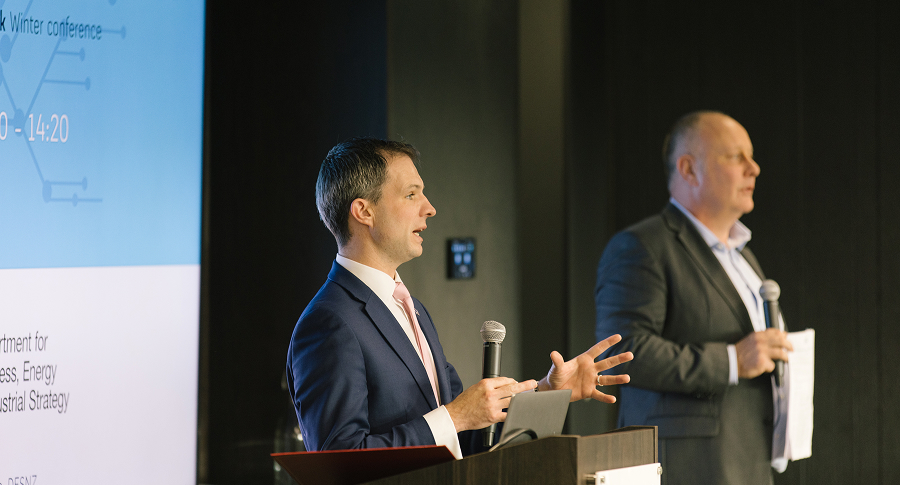At a glance
Local government and local leaders, with their unique reach into communities, will be critical to successfully delivering the heat transition. This is because the solutions for heat are necessarily local and complex, varying by each region, building and household.
Many local authorities have set clear ambitions for decarbonising heat in their areas, but the roles and responsibilities for local delivery have not been well-articulated by national government. This means each area is spending significant resource to carve out an independent path to net zero heat, leading to replication of effort and increased net zero costs.
There are also disparities between local authorities that mean only the best resourced areas are able to access funding, leaving poorer areas missing out on the benefits of decarbonised heat.
Empowering local leadership to deliver clean heat is vital to ensure every region in the UK reaps the rewards of reducing our reliance on fossil fuels for heat – helping to bring down bills, cut carbon and create new green jobs.
This report provides a framework for how national and local government can best work together to take the most cost-effective, place-based approach to heat decarbonisation, with clear roles and responsibilities split between local and national actors.
The role of local government
Over the last few months, we spoke to a lot of people to get their views about where local government and local leaders, with their unique reach into communities, could play a leading role in heat decarbonisation.
We saw evidence of two broad roles for local government in this space.
- Firstly they needed a strong voice and role in the development of local heat and energy infrastructure. This ranges from being part of the investment decision making for electricity and gas networks to having a role in the development of local shared heat infrastructure.
- The second was there is a critical role for local government in priming local markets for retrofit and heat decarbonisation. Local authorities are important actors to ensure that all local areas are prepared for, and can benefit from, the green heat transition.
Given those roles, the key question we asked in the report is how local authorities and national government can work together to scale up heat decarbonisation and reduce the cost of net zero. 333 local authorities replicating activity and working out independently what to do is clearly not efficient.
A key part of the answer is more coordinated and clear national support – frameworks essentially for how national and local government can best work together to address the challenge.
The good news is that the Net Zero Strategy recognises this necessity, but the reality is that there are limited examples of this. What we need now is to transform the ability of local authorities to deliver these roles effectively and cost efficiently.
Local authorities need clear roles and funding but also central support for developing methodologies, data provision and policy frameworks to avoid replication of effort and cost at local authority and regional level.
The report sets out six specific and practical recommendations towards building that clearer framework of local powers on planning for and delivering heat decarbonisation.
The importance of energy efficiency
Given the cost of living and affordability crisis, a critical recommendation in the report is that local authorities carry out ‘energy efficiency zoning’ and that national government develop the methodology for them to do this, based on housing stock and factors such as fuel poverty and local climate.
Through our research, we heard clearly that the current competitive and short-term funding for energy efficiency schemes for the public sector and vulnerable households is causing huge inefficiencies and inequalities. Funding is not strategic or based on need.
Energy efficiency zoning at a local authority level would provide a much needed basis on which to deliver a better, long term and strategic approach to energy efficiency. It would enable local authorities to deliver strategic area-based and targeted energy efficiency and heat initiatives.
Our research also found that there is no shortage of pioneering and inspiring local initiatives on decarbonising heat – but these exist unevenly across England. We cannot rely only on leading areas to get us where we need to go. We also need more action on working to bring up the rear by providing clear local government roles, powers and funding on heat and retrofit.
If we release the potential of local government to lead the heat transformation we could make a huge contribution to ensuring people across England benefit from warmer, cheaper to heat (and cool!) homes.
"Local authorities across the country want to take the lead on decarbonising heat in their local areas and to ensure the benefits reach their communities. However, they lack the powers, resources and responsibilities to achieve their local net zero aspirations.
What local authorities need is much clearer and more comprehensive support and guidance from central government that gives them a voice in the development of local heat infrastructure and a role in kickstarting the local retrofit market and supply chain – helping to prepare their area for the heat transition.”
Poppy Maltby, head of cities and regions
"Delivering energy efficiency and heat decarbonisation is on the critical path to addressing our national objectives of levelling up the country, shielding ourselves from rising gas prices, and cutting one of the biggest sources of carbon emissions in the UK.
With the right support, local authorities could play a key leadership role in decarbonising our homes and businesses, whilst addressing the inequalities that are being felt by those at the sharp end of the current energy and economic crises.”
Merlin Hyman, chief executive














